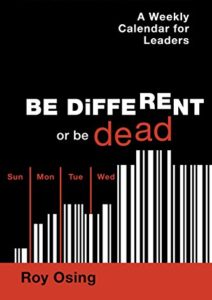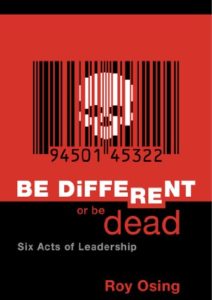There’s a ton of articles out there providing guidance on what it takes to be a great leader.
They speak of characteristics such as vision, passion, and communications which are applicable to leaders responsible for any type of organization. For example, they would apply equally as well as a marketing leader, the leader of an IT shop or a chief executive.
In my experience, however, the demands of a sales organization requires something unique of the individual leading it.
If you are not amazing at these 5 things your tenure as a sales leader will be very short (and painful).
Handling contradictions
Sales deals with almost impossible contradictions constantly; it’s integral to the sales way of life.
Short and long term objectives must be balanced to meet both annual revenue targets as well as longer-term client loyalty and retention goals.
If annual sales objectives are achieved without the relationship building efforts it takes to bond a client to the organization, sales loses.
If on the other hand, product sales fall short of meeting expectations because product push efforts are subordinated to gentler account management, they lose as well.
The sales leader must be adept at achieving a symbiotic focus on both short and long term sales activity, ensuring that salespeople are able to earn their annual bonus and the organization continues to build client loyalty for long term value growth.
Recovering from screw ups
In sales, things go haywire on a daily basis and it’s usually associated with a specific customer situation.
Stuff goes wrong.
A customer is unhappy with the product they purchased, their service doesn’t work as promised, their bill isn’t accurate or their service installation was a total disaster.
This happens almost every day with the consequence that sales leadership is always in the recovery mode from mistakes and service OOPS! that inadvertently occur.
The ability to lead in a client recovery situation is critical in terms of keeping the client in the fold and not losing them to the competition.
What traits are required of the recovery leader?
- The humility to apologize regardless of who was responsible for the mishap;
- A bias to act FAST because if recovery doesn’t happen in hours the client is likely gone;
- The ability to mobilize the entire organization to resolve the client’s problem.
The sales leader is the client’s advocate “on the inside”, responsible to do whatever it takes to regain normality in the client relationship. - Surprise! Every great recovery uses the element of surprise to dazzle the client under duress. A recovery that makes the client forget that the OOPS! happened in the first place gives them what they don’t expect, an element that surprises and delights them.
An amazing sales leader knows their clients and is adept at surprising them in the face of a service breakdown.
Planning and executing
There are two faces to a sales organization; it must be competent at being two-faced.
First, it has an important planning role. It must “look up” to the strategy of the overall organization and translate it very specifically to sales. The sales planning responsibility is extremely important because if organizational targets are not accurately integrated with the sales game plan for the year, dysfunction occurs where sales is out of phase with the needs of executive leadership.
Second, sales is a critical execution arm of the organization; it must deliver revenue day-in and day-out in the face of rising client expectations and aggressive competition.
It is not an easy task to both get the plan right AND execute it pristinely in a complex business environment.
The sales leader must gather the right mix of skills and experience in their team to achieve both ends; a challenge rarely demanded of leaders of other disciplines.
Defending and attacking
Sales is the most critical frontline team in an organization; it is delegated the almost impossible challenge to both protect the organization’s market position and grow revenue by acquiring new clients — retention and growth simultaneously.
Protecting what you have requires one set of skills and competencies while growing to acquire new business requires different sales behavior.
The standout sales leader must build a team that houses both skill sets, a complex requirement that is simply not part of the general leadership portfolio which tends to be concentrated around a narrow discipline — marketing and finance for example.
Managing ego
A great salesperson has a healthy ego; that’s just the way it is.
A high level of self-esteem — almost bordering on narcissism — is a prerequisite to being successful in their world of client rejection, cold calling, outmatching competitors, service screwups and executive meddling.
A strong ego coupled with a high pain tolerance is necessary ingredients of successful sales.
The sales leader must be able to build, assuage and harness sales ego; empower it to deliver results.
Most leaders don’t have ego management as a critical element of their job description. Yes, egos are present in other disciplines like accounting and business development, but they are not as tightly linked to successfully delivering results as they are in sales. For example, you might be able to get away with a lower self-esteem individual in a marketing analyst position, but a salesperson with a similar trait wouldn’t last long.
To be a great sales leader is to be a unique special person in the common leader crowd. It’s not good enough to excel in common leader skills that others aspire to master, they excel in skills that most people simply don’t know about.
When is the last time you’ve read about a leader who is judged on how well they inspire and motivate their team to recover from screwups?
Thought so.

















Comments (3)
Thanks for sharing the information. Yes these are some important skills that must be adapted by people working in sales field.
Planning without execution equals to no action. Execution is key to any strategy implementation.
What an inciting write up.
It takes more than just normal managerial skills to successfully lead a sales team.